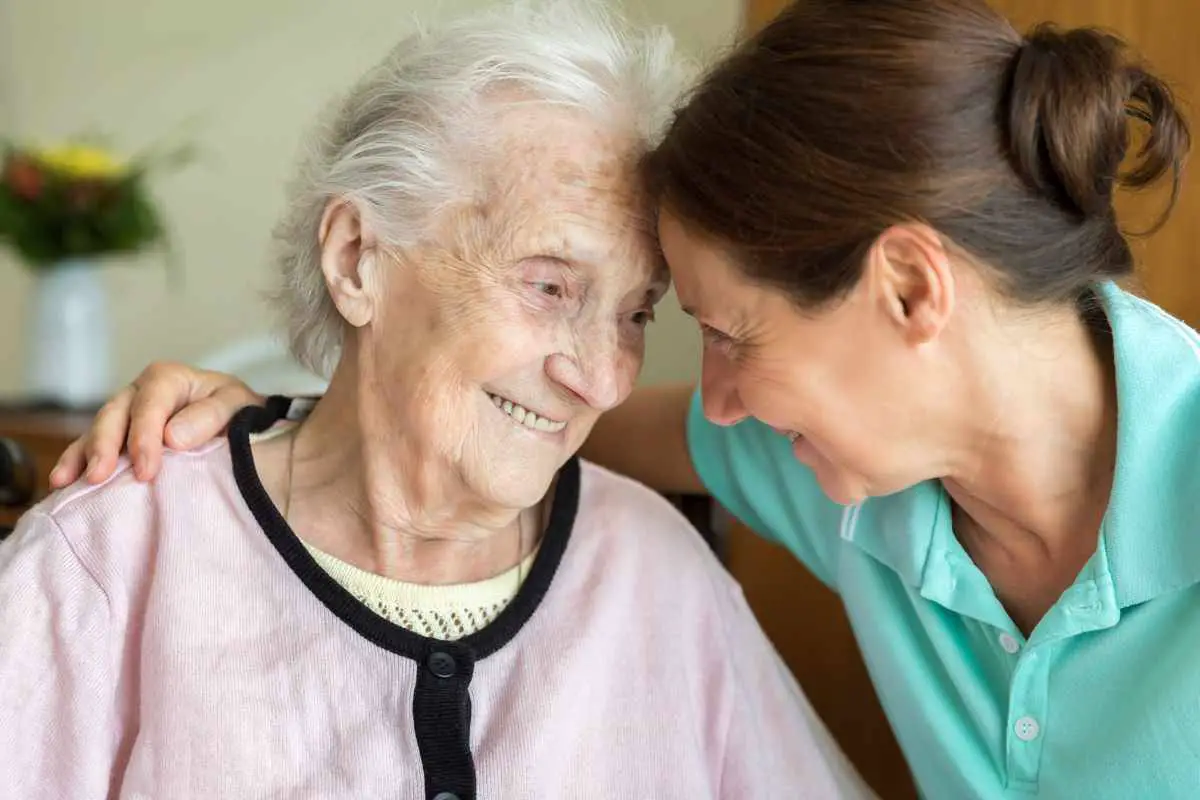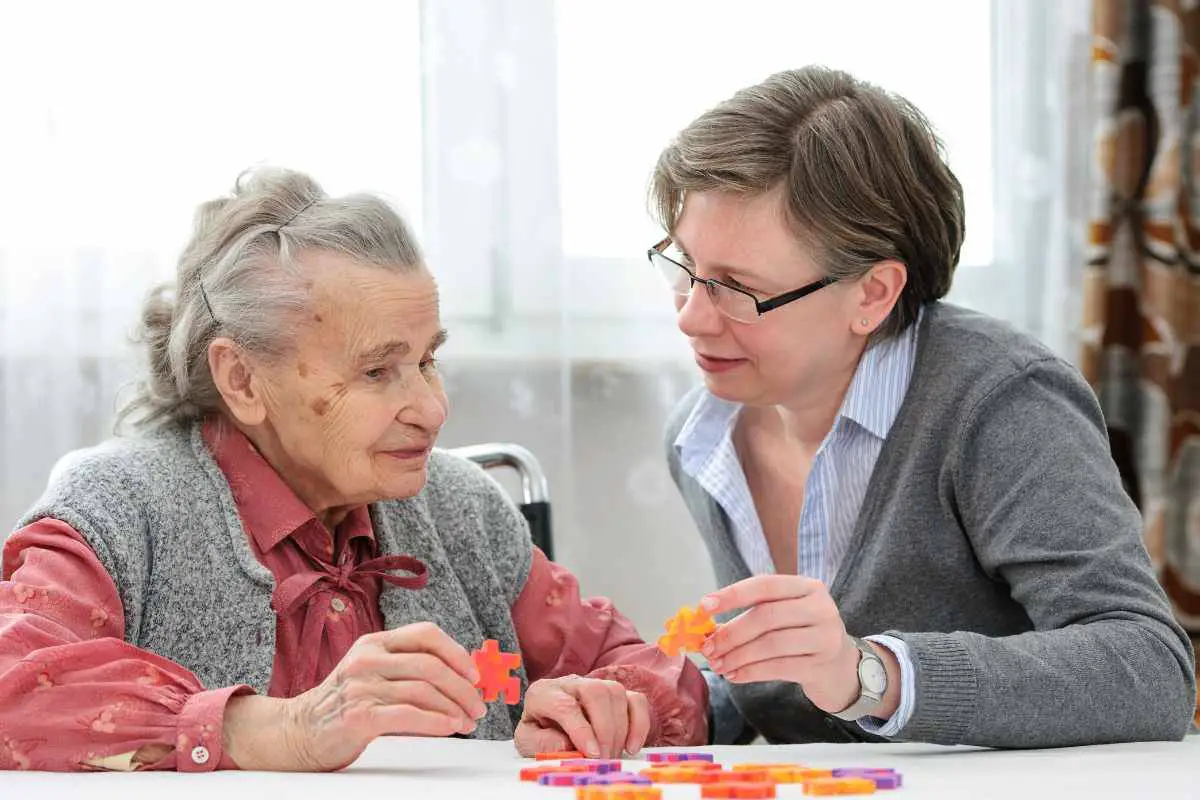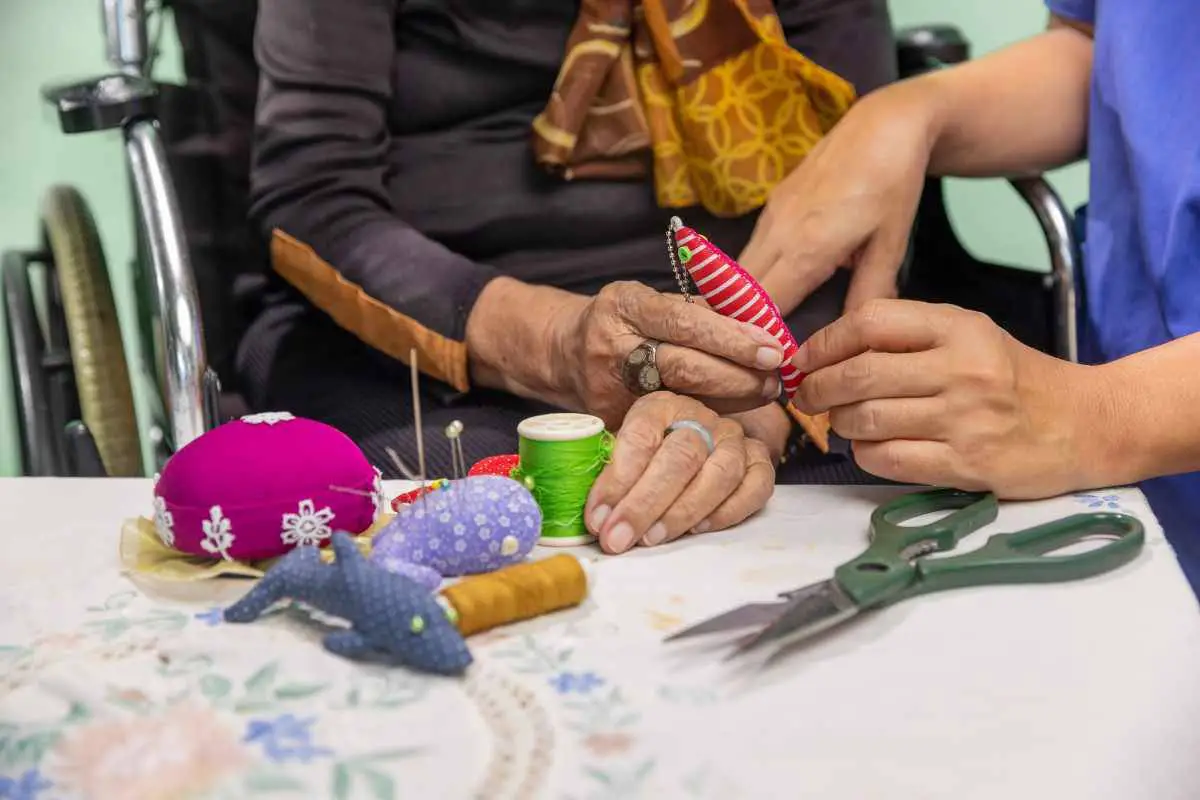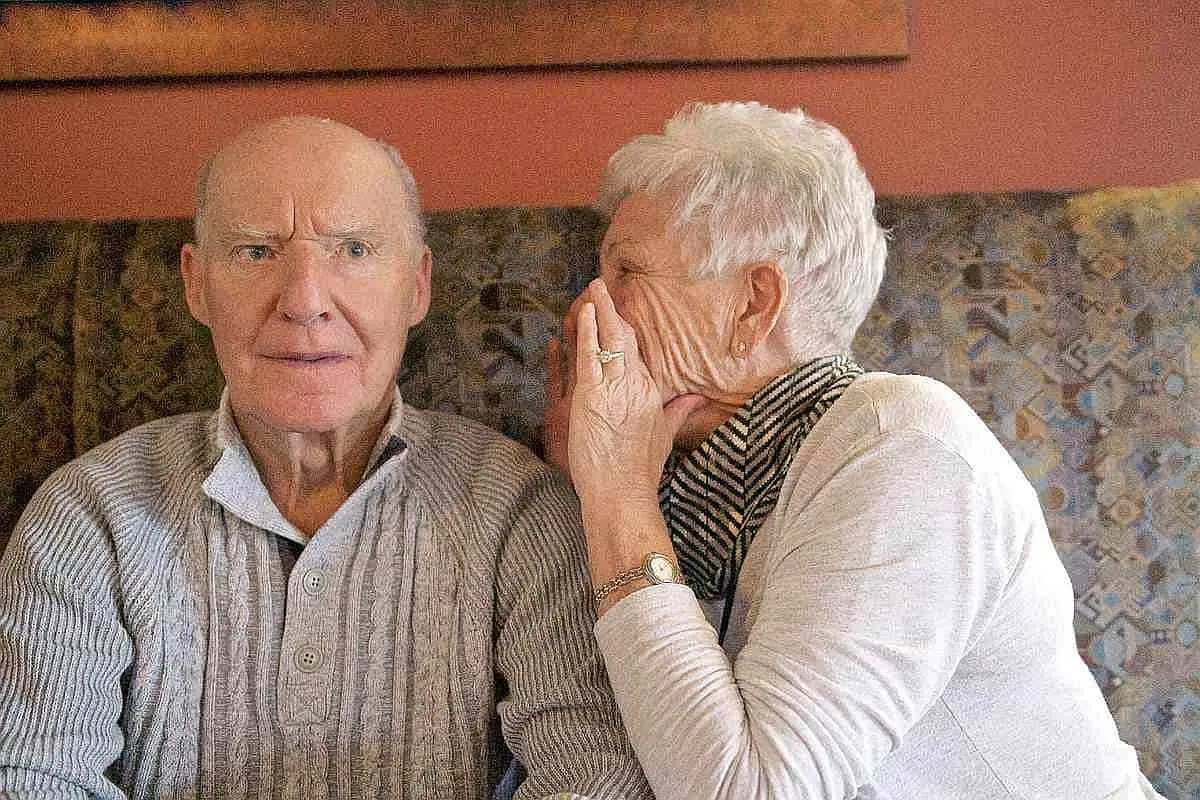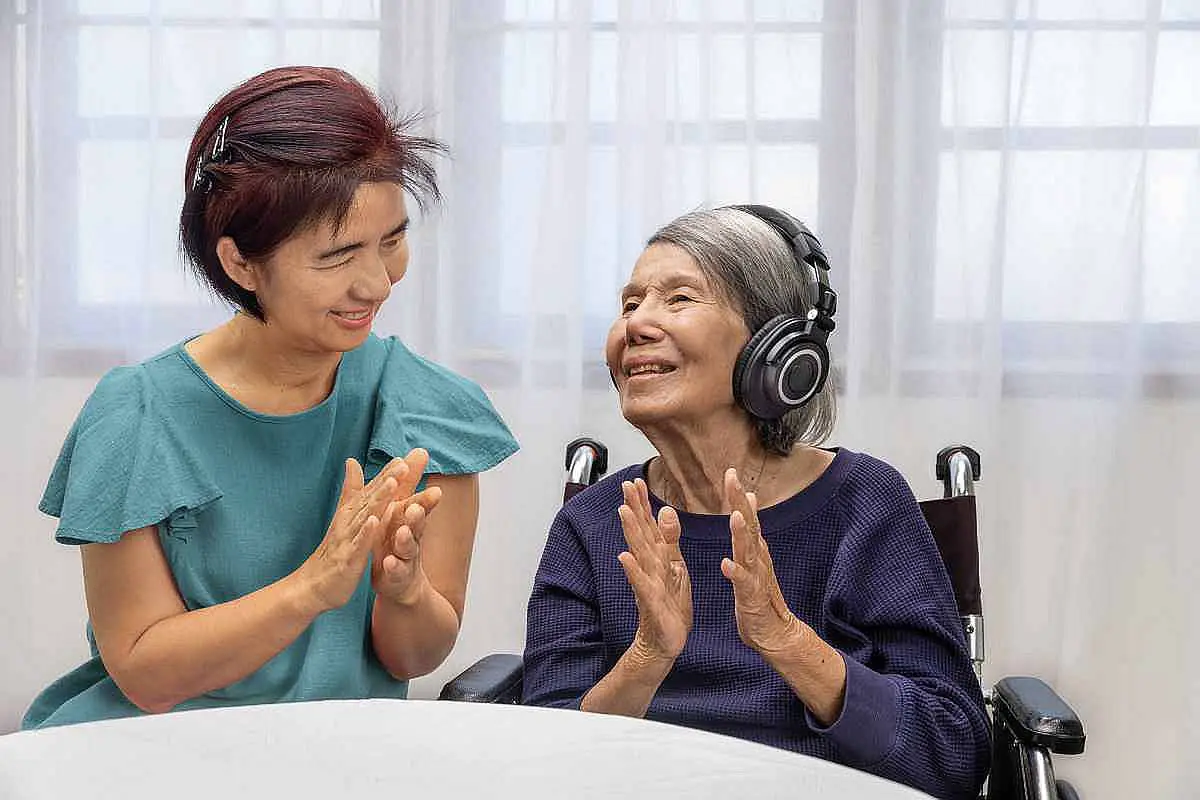When caring for seniors with dementia, effective communication stands as a cornerstone for maintaining their dignity, comfort, and quality of life. However, navigating conversations with individuals experiencing cognitive decline can present unique challenges. In this article, we’ll explore nine invaluable tips for enhancing communication with seniors living with dementia. From fostering empathy to utilizing practical strategies, these insights aim to empower caregivers and loved ones with the tools needed to engage meaningfully and respectfully with those navigating the complexities of dementia.
Individuals suffering from dementia often find it hard to remember things, communicate with others, think clearly, or even take care of themselves. Complicate these challenges with mood swings and changes in personality or behavior, and it can be difficult for loved ones and other caregivers to communicate with a person struggling with memory loss.
What is Dementia
Dementia is a general term for a decline in mental ability severe enough to interfere with daily life. It’s not a specific disease but rather a set of symptoms associated with a decline in memory, thinking skills, and other cognitive abilities.
There are several types of dementia, each with its distinct characteristics and underlying causes. Some of the most common types include:
- Alzheimer’s disease: The most common form of dementia, characterized by the buildup of protein plaques and tangles in the brain, leading to memory loss and cognitive decline, typically as people age.
- Vascular dementia: Caused by reduced blood flow to the brain, often due to strokes or other vascular issues, resulting in difficulties with reasoning, judgment, and memory.
- Lewy body dementia: Characterized by the presence of abnormal protein deposits in the brain called Lewy bodies, leading to fluctuations in alertness, visual hallucinations, and movement symptoms similar to Parkinson’s disease.
- Frontotemporal dementia (FTD): A group of disorders that primarily affect the frontal and temporal lobes of the brain, leading to changes in behavior, personality, and language abilities.
- Mixed dementia: A combination of different types of dementia, often Alzheimer’s and vascular dementia occurring simultaneously.
These are just a few examples, and there are other less common types of dementia as well. Each type may present with unique symptoms and progression patterns.
Why It’s Important to Talk to Seniors with Dementia
About 25% of Americans over 60 are isolated from other people. The CDC has found that adults in the later stages of life who experience loneliness have higher rates of onset of serious illness. Regular social interactions are important for everyone, especially for those with dementia or Alzheimer’s. Keep them active by engaging in discussion and by participating in various activities with them that promote community and conversation.
How to Approach Communication with People Living with Dementia
When communicating with individuals living with dementia, it’s essential to approach interactions with patience, empathy, and understanding.
One effective strategy is to maintain a calm and reassuring demeanor, as individuals with dementia may pick up on the emotional cues of those around them. By speaking in a gentle, normal tone and using simple sentences and clear language, caregivers can help minimize confusion and frustration for the person with dementia. Speak slowly. Additionally, non-verbal messages and communication practices, such as maintaining eye contact, using facial expressions, and employing gestures can enhance understanding and convey meaning, warmth, and empathy, even when verbal communication may be challenging.
Another important aspect of communication with people living with dementia is the practice of active listening. This involves giving the individual your full attention, being present in the moment, and validating their feelings and experiences. Avoid talking too much. By actively listening to their words, tone, and body language, caregivers can better understand the individual’s needs, preferences, and emotions, fostering a sense of connection and mutual respect.
Moreover, providing ample time for the person to express themselves and avoiding interrupting or rushing the conversation can help build trust and rapport, promoting more meaningful and positive interactions. Give the person time, and be patient if they have difficulty finding their words.
Overall, approaching communication with empathy, patience, and active listening can significantly enhance the quality of life for individuals living with dementia and foster stronger relationships and deeper connections with their caregivers and loved ones.
With all that said, here are a few tips to help both you and the person living with dementia or similar health conditions understand each other and enhance overall communication.
1. Approach Them with Care and Respect
Be careful and calm in your approach and always show respect. Approach the patient from the front. Numerous types of dementia combined with the effects of aging can lead to impaired peripheral vision as well as hearing loss. Seniors with dementia are already navigating an unknown world; startling them makes for a poor start to a conversation. Approach slowly and greet them from a distance. If they don’t respond cheerfully, maintain your distance until they appear comfortable.
2. Ensure You Communicate Clearly
Use simple language when speaking. Make sure that you speak calmly and slowly with a reassuring voice. Use a low pitch and avoid using a raised voice when speaking. Make sure you repeat what you need to convey until they understand. If they don’t understand even after repeating, try to re-paraphrase your message. If that is not working, take a breath and try another way. Avoid arguing. Be creative in both the ways you communicate and the conversation topics you use to help a person with dementia understand what you are trying to convey.
3. Talk About One Thing at a Time
Someone who possesses degenerative disorders cannot engage in the juggling necessary to keep conversational conversations going on multiple threads. The conversation needs to be concise, and it’s important to use short sentences. Ask observational questions, and avoid intimidating or complicated questions. Ask simple questions such as, ‘How do you feel about this gorgeous dress?’ Asking specific questions about the dress is simple and clear. Avoid bringing up overwhelming questions from previous conversations and stay in the moment as best you can.
4. Capture Their Attention Softly
When speaking to loved ones with dementia, make sure that you capture their attention softly. You cannot force them to understand by speaking louder (unless they have hearing loss). Don’t get frustrated if you find that they don’t even recognize you. Instead, maintain eye contact and tell them who you are and what your relationship with them is. This may enable them to better concentrate on what you are telling them.
5. Speak Naturally and Use Gestures
When engaging in conversation with seniors who have dementia, I find it’s essential to speak naturally and incorporate gestures into your communication. Using a calm and reassuring tone, accompanied by simple and clear language, can help the individual with dementia feel more at ease and understood. Additionally, incorporating gestures such as pointing, nodding, or demonstrating actions can provide visual cues that aid in comprehension, especially for individuals who may have difficulty processing verbal information.
6. Tolerate Their Mistakes
Seniors suffering from dementia can be confused and unsure about what they are saying. They will make mistakes when talking to you. The wrong words will come out. They may forget what they were saying. They might start talking about things that you know never occurred or they might mistake you with someone else. Don’t interrupt them in an attempt to correct their mistakes. Instead, wait for them to respond and find the right words. If necessary, meet them where they are, meaning if they are in the past at that moment, join them there and talk to them as though you too are in that time.
7. Use Nonverbal Cues
Nonverbal cues such as facial expressions, tone of voice, and body language often convey emotions and intentions more effectively than words alone. Maintaining eye contact, offering reassuring smiles, and using subtle movements such as reassuring pats or physical touch can provide encouragement and help convey empathy and warmth, fostering a sense of trust and comfort in the communication process. Additionally, observing the senior’s nonverbal cues, such as facial expressions or gestures, can offer valuable insights into their emotions and needs, allowing caregivers to respond more effectively and appropriately.
8. Know When To Communicate with Them
As mentioned, dementia can cause mood swings in seniors. There are times when they don’t want anybody in their space. Avoid approaching them during such moments as this will disturb and potentially aggravate them, causing them to feel frustrated. If possible, save your talk or message for a time when they are more at ease. This will help ensure they do not feel overwhelmed or disturbed by your presence.
9. Understand There Will Be Good Days and Bad Days
When communicating with seniors who have dementia, it’s crucial to understand that there will be good days and bad days. Dementia symptoms can fluctuate, and individuals may experience periods of clarity and coherence followed by moments of confusion or agitation. By acknowledging and accepting these variations, caregivers can approach interactions with flexibility and patience. On good days, caregivers can seize opportunities for meaningful engagement and conversation, while on challenging days, they can provide extra support and reassurance. Understanding the unpredictable nature of dementia allows caregivers to adapt their communication strategies accordingly, fostering empathy and maintaining positive connections with their loved ones.
Frequently Asked Questions (FAQs)
What are 3 things to never do with your loved one with dementia?
When caring for a loved one with dementia, it’s essential to avoid certain actions that could potentially cause distress or harm. Three things to never do include:
1) Never argue or correct them: Arguing with a person with dementia about facts or memories that they may not remember correctly can lead to frustration and agitation. Instead, validate their feelings and redirect the conversation to a more positive topic.
2) Never rush or force activities: Pushing someone with dementia to do things quickly or against their will can increase their anxiety and resistance. Allow them ample time to complete tasks at their own pace and provide gentle encouragement rather than pressure.
3) Never neglect self-care: Caring for a loved one with dementia can be emotionally and physically taxing. Neglecting your own well-being can lead to burnout and negatively impact your ability to provide effective care. It’s important to prioritize self-care, seek support from others, and take breaks when needed to recharge and maintain your own health and resilience.
What is the number one trigger for dementia behavior?
The number one trigger for dementia-related behaviors varies from person to person, as each individual’s experience with dementia is unique. However, one common trigger is changes in the person’s environment or routine.
Disruptions such as moving to a new residence, changes in caregivers, or alterations in daily routines can often lead to confusion, agitation, or other challenging behaviors in individuals with dementia. It’s essential for caregivers to strive to maintain a stable and familiar environment for their loved ones with dementia to help minimize behavioral triggers.
Should you tell a person with dementia that they have dementia?
Whether or not to tell a person with dementia about their diagnosis is a complex decision that depends on various factors, including the individual’s cognitive abilities, personality, and preferences, as well as the advice of healthcare professionals and family members.
In some cases, disclosing the diagnosis may lead to increased anxiety, fear, or sadness, while in others, it may promote understanding and facilitate planning for the future. Ultimately, caregivers should carefully consider the individual’s well-being and consult with healthcare professionals to determine the most appropriate approach for disclosure.
What are some ways to interact with a patient with dementia other than talking?
Brain exercises, and brain games in general, can be a great way to communicate with a person struggling with dementia. People with dementia often feel invigorated when they’re successfully able to do the things they know they’re capable of, and these ten brain exercises can be a great way to get started!
Additional Resources
The following books are all top-rated books to help caregivers and family members in their quest to provide the best care for their loved ones struggling with dementia or other similar medical conditions.
- Weatherill RN CAEd, Gail (Author)
- English (Publication Language)
- Mace, Nancy L. (Author)
- English (Publication Language)
- Cruz, Janet G (Author)
- English (Publication Language)
- Graff-Radford M.D., Dr. Jonathan (Author)
- English (Publication Language)
If you find yourself needing additional help, try reaching out to the Alzheimer’s Association or look for local resources in your state.
The Alzheimer’s Association is a great resource to help you navigate the complexities associated with caring for someone with dementia. They provide lots of resources on the ways in which dementia affects the way a person communicates while also offering additional tips that may help improve communication between yourself and a patient or loved one with dementia.
Final Thoughts
In conclusion, dementia affect communication differently in each individual, often resulting in challenges with expressing thoughts and understanding verbal cues. Effective communication with seniors struggling with dementia is crucial for maintaining their dignity, sense of connection, and quality of life.
By implementing the nine tips outlined in this article, caregivers and loved ones can navigate challenging communication with empathy, patience, and understanding. Remembering to use simple language, non-verbal cues, and a compassionate approach can make a significant difference in fostering meaningful interactions and enhancing the overall well-being of individuals living with dementia.
With patience, practice, and a commitment to empathy, we can create supportive environments where communication becomes a bridge to connection and understanding for a patient with dementia.
About the Authors
Derrick has worked as a social worker in a nursing home, as the Social Services Manager at an area agency on aging, as Director of an Adult Day Care at an Alzheimer’s care facility, and has served on the board of the Maine Adult Day Services Association. He’s also worked for the State of Maine as a Research Analyst at the Office of Elder Services. He now works as a Program Manager on Medicaid policy, and writes on topics related to healthy aging, sustainable caregiving, and Alzheimer’s Disease.
Leona Small is a freelance writer and former caregiver. She has experience working with people with Alzheimer’s Disease and related dementias and has spent years working alongside both patients and caregivers in Hospice. Additionally, she’s worked as a Professional Organizer helping people and families to purge, organize, manage, and prepare for various life transitions such as moving, downsizing, and the passing of loved ones. Her passions include writing about healthy aging, innovative resources to help older adults and caregivers, and traveling.

